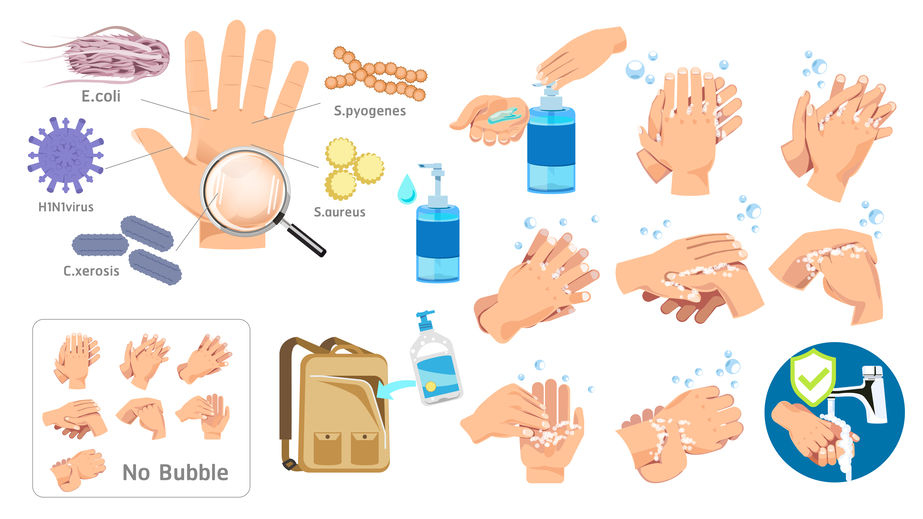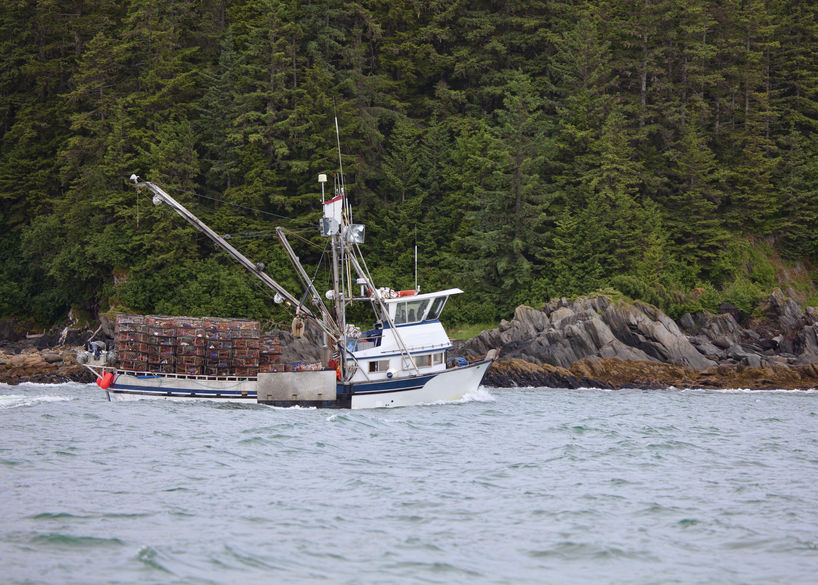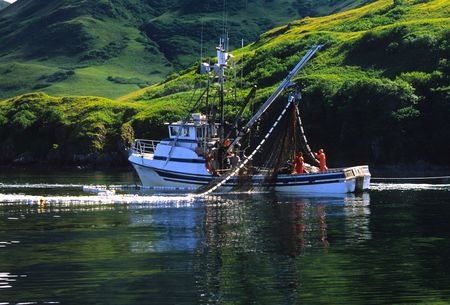

President of The UFA Outlines How to Keep Alaska Fishing Crews Safe During Pandemic
The 2020 Alaska salmon season is approaching and that means that soon salmon fishermen will be heading up to Alaska to do their work. But, the president of the United Fisherman of Alaska (UFA) wants to make clear that this coming season will not be “business as usual” and that vessel operators must adhere to a “high standard of caution and personal responsibility” in order to keep their crews safe. The State of Alaska has announced Health Mandate 17, which mandates that independent commercial fishing vessels implement protective measures and requires operators to sign an Agreement Form (Appendix 02). Vessel operators are responsible for their crew’s compliance with the mandate and in general, are responsible to provide a safe working environment with reasonable safety precautions and a clean and healthy place to work.
(more…)
Read More

Protecting Commercial Fishermen from Preventable Diseases
Seamen take on a very high risk of injury compared to workers in many other industries. Hazards specific to the job create certain common types of accidents among maritime workers. One of the potential hazards in a fishing vessel is the spread of communicable diseases because of poor hygiene or an unsanitary environment. These medical emergencies can be avoided with “medical survival skills”.
(more…)
Read More

Vessel Sinking Accident in Alaska Leaves Five Missing After Search
Commercial fishing is one of the most hazardous occupations in the United States, with a fatality rate 29 times higher than the national average worker fatality rate. Data from CDC.gov confirms this. The NIOSH Western States Division (WSD) office in Alaska has been studying fishing safety since 1991 in an effort to reduce the number of commercial injuries and fatalities. The CDC has identified the biggest risks to fishermen as vessel disasters, falls overboard and machinery on deck.
(more…)
Read More


How to Choose a Maritime Injury Attorney
If you have been injured on a commercial fishing or crabbing boat, while working on or near a dock, or some other vessel on the sea you may need to seek the help of a maritime injury attorney. He or she will make you aware of your rights and help you understand how best to receive compensation for your injuries in order to protect yourself and your family.
Maritime Law
Read More


Navigating through Maritime Injuries
For most workplace injuries, worker’s compensation or state personal injury laws apply. However, if you are a maritime worker who has been injured on a vessel at sea or an onshore worker injured serving a vessel going out to sea, your case will likely be handled under maritime law. Commonly, a maritime related injury falls under the Jones Act and won’t be covered by state workers’ compensation laws. In the event it does, the Jones Act and maritime law will likely render you with more benefits.
Did your injury occur under the following circumstances?
If so, you may want to pursue compensation under the Jones act:
- The site of your injury is a vessel “in navigation” at sea or in a body of water connected to interstate or international commerce.
- You spend the majority of your workday on board the vessel.
- You are a direct contributor to the work of the vessel.
How is your position classified?
A variety of workers may qualify for coverage as “seaman” under the Jones Act, including:
- Fishermen and fish processors
- Tugboat and barge workers
- Cruise ship, river boat and ferry boat workers
- Transportation workers
- Construction workers, janitors or engineers who work on vessels or barges
- Oil rig workers
- Commercial divers
- Harbor workers
For those workers injured between land and sea and who are not considered “seaman” your case would likely be handled under the Longshore and Harbor Workers’ Compensation Act.
What steps should I take when injured at sea?
- Report your injury to the ship’s captain
- Seek full medical attention
- Collect the names, addresses and telephone numbers of witnesses
- Identify any unsafe condition that caused your injury
- Consult with a lawyer who handles maritime personal injury cases about your rights
- If your injury is or may become serious, do not settle your case without consulting with a maritime lawyer
Delaying your claim could result in harming your case by inadvertently overstepping the statute of limitations. Consulting with a maritime law attorney will ensure you are fully represented.
What should you look for when hiring a Maritime Injury Attorney?
Select a law firm that deals specifically with maritime law and personal injury cases. In doing a search, keep in mind that most admiralty and maritime lawyers will be near major seaports. To hire the best lawyer you can for your situation, it is important to take the next step of accessing background information for the lawyers presented to you. Search their names and law firm online to find customer testimonials and visit their website if available. Once you have narrowed down your selection, call the office and ask for references specific to admiralty law cases.
Because of the complexity of maritime injury claims, it’s best to consult with an experienced maritime attorney to be sure your rights are fully protected. The offshore lawyer can help determine which act best suits your situation and estimate how much you might be owed based on the specifics of your case. If you’ve been injured and have a good case, you should be able to hire a lawyer either on an hourly or a “contingency fee” basis.
